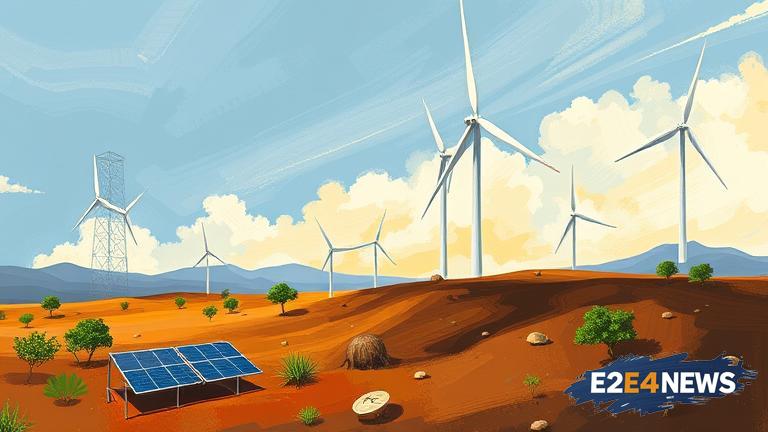Africa is undergoing a significant transformation in its energy landscape, with a growing focus on renewable energy sources. The continent is rich in solar and wind resources, making it an ideal location for the development of renewable energy projects. In recent years, there has been a surge in investment in renewable energy infrastructure, with many countries committing to increase their use of clean energy. South Africa, for example, has set a target of generating 20% of its electricity from renewable sources by 2030. Similarly, Morocco has announced plans to generate 52% of its electricity from renewable sources by 2030. The use of renewable energy is not only beneficial for the environment, but it also has the potential to create jobs and stimulate economic growth. In fact, a report by the International Renewable Energy Agency (IRENA) found that the renewable energy sector could support up to 24 million jobs globally by 2030. Africa is also home to a number of innovative renewable energy projects, including the Desertec Industrial Initiative, which aims to generate electricity from solar power and transmit it to Europe. The initiative has the potential to provide electricity to millions of people and reduce greenhouse gas emissions. Furthermore, the African Union has launched the Africa Renewable Energy Initiative, which aims to develop at least 300 gigawatts of renewable energy capacity by 2030. The initiative has received significant support from international organizations and countries, including the European Union and China. In addition to solar and wind power, Africa is also exploring the potential of other renewable energy sources, such as hydroelectric power and geothermal energy. For example, Ethiopia has launched a number of hydroelectric power projects, including the Grand Ethiopian Renaissance Dam, which is expected to generate 6,000 megawatts of electricity. The dam has the potential to provide electricity to millions of people and support economic development in the region. Moreover, Kenya has emerged as a leader in geothermal energy, with a number of projects underway to harness the country’s geothermal resources. The use of renewable energy is also having a positive impact on energy access in Africa, with many off-grid communities gaining access to electricity for the first time. In fact, a report by the World Bank found that off-grid renewable energy solutions could provide electricity to up to 600 million people in Africa by 2030. However, despite the progress being made, there are still a number of challenges that need to be addressed, including the high upfront costs of renewable energy projects and the lack of infrastructure in some countries. To address these challenges, international organizations and countries are providing significant support to African countries, including financing and technical assistance. For example, the African Development Bank has launched a number of initiatives to support the development of renewable energy in Africa, including the Renewable Energy Facility, which provides financing to renewable energy projects. In conclusion, Africa’s renewable energy revolution is gaining momentum, with a growing focus on solar and wind power. The use of renewable energy has the potential to create jobs, stimulate economic growth, and reduce greenhouse gas emissions. While there are still challenges that need to be addressed, the support of international organizations and countries is helping to drive the development of renewable energy in Africa.
